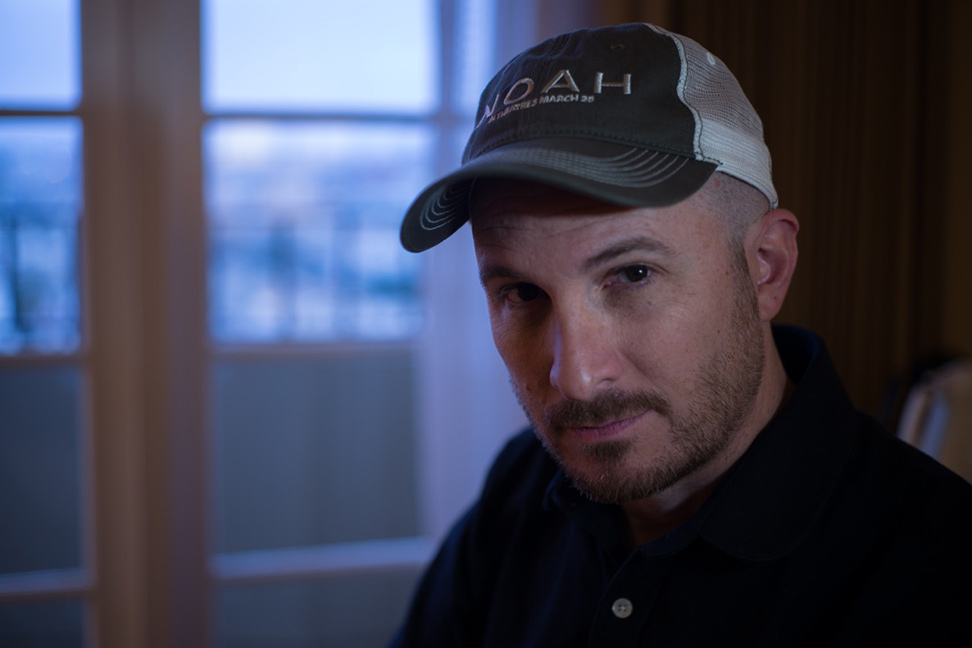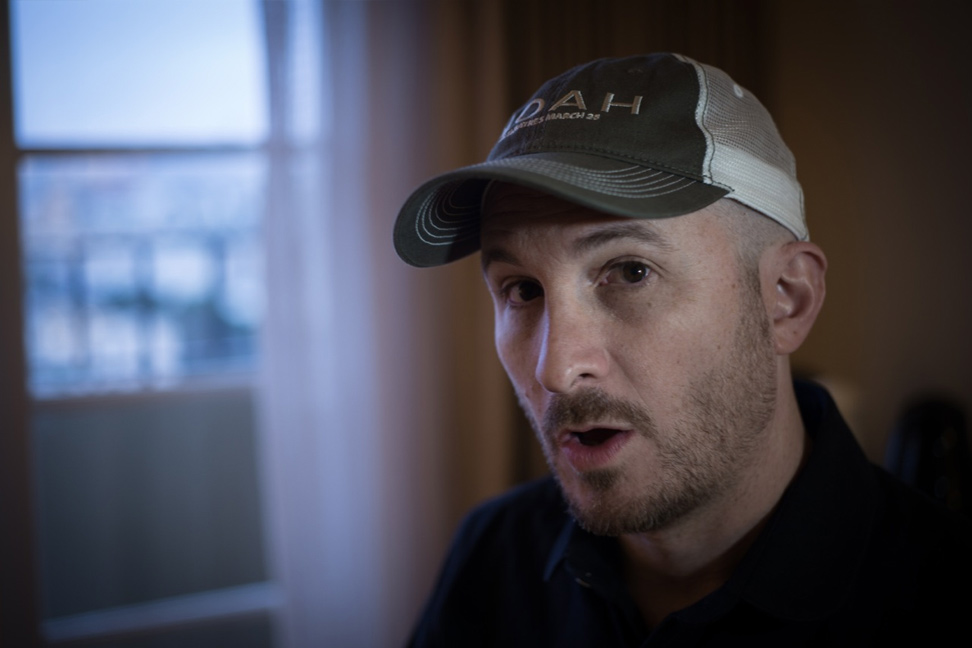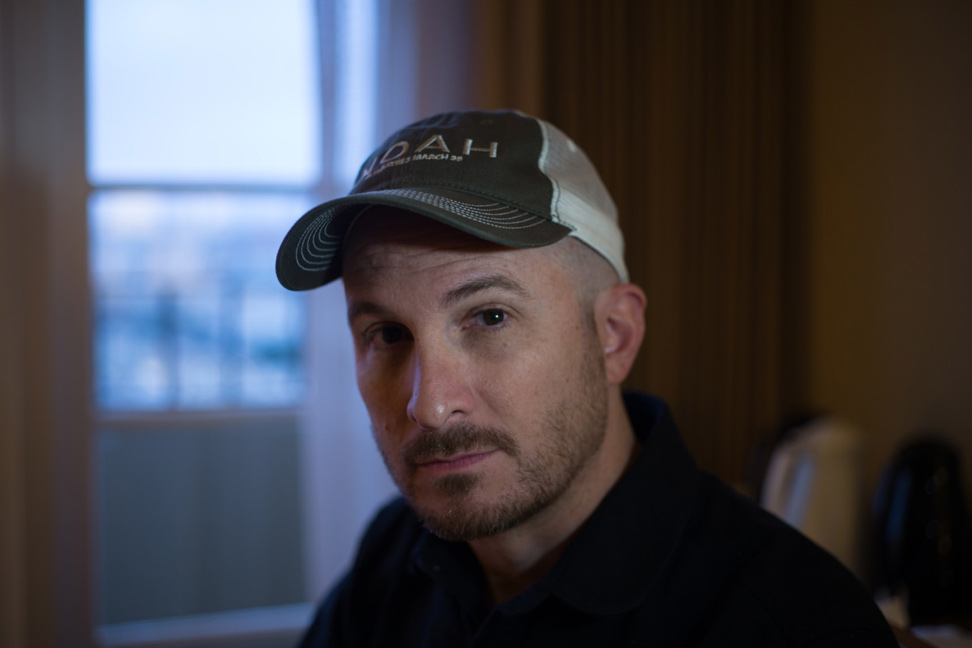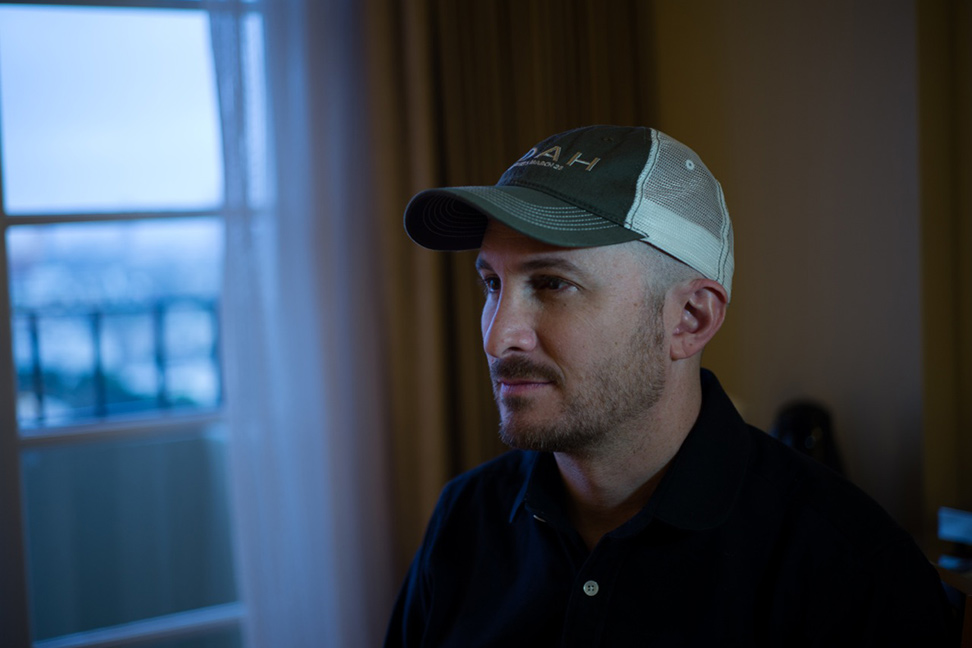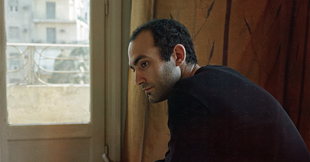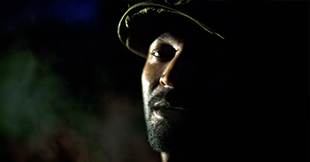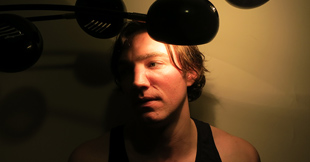
An interview by Victoria Foster
Photographed by Wyatt Troll
Who’s Darren Aronofsky?” is the last response I expected from my 24-year old friend, a recent graduate of NYU Film School, when I told her that I was preparing for this interview. I was actually shocked to find out how many people around town do not know who Aronofsky is. “He directed PI?” I counter, “And THE FOUNTAIN.” Blank looks. “And THE WRESTLER? BLACK SWAN?” That’s when it clicks into place for them. But they usually don’t know that all these films were all directed by the same guy. This surprises me because Aronofsky has such a great reputation within the industry that people in the business refer to him in that last-name-only manner usually reserved for household names like Spielberg or Scorcese. Especially with his Oscar streak of late.
Full disclosure: Aronofsky was an active client of CAA when I worked there in 2005 and ‘06, so I may have an above-average awareness of his accomplishments. He was one of those rare writer-directors who had achieved cult status at an early age, and even if you didn’t see PI you’re sure to remember REQUIEM FOR A DREAM. He also had the renaissance-man wherewithal to own and operate his own special-effects house, Protozoa Pictures. Without revealing the specifics of his CAA pitch strategies, I’ll say that we referred to the first exposure of one his projects to industry players as a “launch” with good reason.
I catch up with him at the Four Seasons Hotel and before his dinner with his former producing partner, Eric Watson (PI, REQUIEM FOR A DREAM, THE FOUNTAIN) where they will discuss Eric’s feature film directorial debut, THE SAVAGE, a story about the legendary Bigfoot. Aronofsky is shepherding the project as Executive Producer.
Aronofsky worked miracles with small budgets for his recent auteur pieces THE WRESTLER, which was nominated for two Academy Awards in 2009, and BLACK SWAN, with five nominations plus one win for Natalie Portman as Best Actress in 2010. These recent projects have not only won over critics and Academy voters, but also earned huge margins at the box office and positioned him to take bigger risks. Aronofsky’s films are good and they make great money. He’s a rainmaker, plain and simple. A unicorn. The holy grail. Cue the big studio offers and bam: his next project became the $125m Paramount epic NOAH. Talk about rain…
NOAH is the biggest-budget Aronofsky has worked with in his career, so when we sit down I inquire about what he learned from the experience. His answer reveals a philosophical and grounded approach: “I don’t know how much the process changes if it’s a $60k film or a big budget film like this,” he says, “you have a limited amount of time and in that time you have to make the right choices. I think you just constantly have to stay in the moment”
Aronofsky’s NOAH makes those moments raw and real with his usual visual ferocity, first by transplanting the story from cliché’d dessert sands into a stark and brutal, seemingly sci-fi fantasy landscape, and then letting it blossom into an anguished family drama where a flawed patriarch becomes almost as merciless a celestial tool as the flood itself—until his frail humanity saves him. Aronofsky seems to have put as much thought into the family crisis as the epic visuals and special-effects, which include fallen Seraphim rock-giants, a shining procession of animals boarding the ark, and a nod to TITANIC as the ship is tossed by monstrous waves.
Even before it opened, the film drew controversy and received mixed reviews from critics; some protested the changes to the story as written in the Bible and some objected to what they saw as an over-mixing of genres, but it elicited curiosity and got enough hearts beating to open at number one and gross $320 million worldwide.
The cast of NOAH had plenty to do with their screen time besides sell tickets. Aronofsky proved brilliant with complex young woman characters, aiding Natalie Portman to do some of her best work in BLACK SWAN, and in NOAH he does it again–Emma Watson gives one of her most natural and layered performances to date as the young wife of one of Noah’s sons who has to defend her children from his misdirected wrath in order to restart the human race after the flood.
This is Aronofsky’s second strong collaboration with Jennifer Connelly, who starred in REQUIEM FOR A DREAM. She plays “Naameh” the wife of Russell Crowe’s “Noah.” While little detail is given about her in the Bible, Connelly did research to fill in the blanks, and created a striking character who models great loyalty and capability. She offers emotional stability to balance Noah’s inspired mania while constantly busying herself with interesting horticultural innovations. Russell Crowe has publically appreciated the fact that his earlier experience of playing opposite Connelly in A BEAUTIFUL MIND gave them a higher starting point to find a deep connection.
NOAH was Aronofsky’s first collaboration with Crowe. He says he admires the actor’s unfailing authenticity but he approached the behemoth star as he would any talent. “I think every actor is different,” says Aronofsky, “and you have to listen to your actor and see what they need and get a sense of their vibe and their energy and what drives them. I think it’s your job as a director not to force your hand on them but more to observe what they need and what they want, and try to service that.” It seems that the actors appreciate the space.
Aronofsky’s life may make a career as an A-List film director look easy. He won a contest in 7th grade with a poem about none other than Noah’s Ark, which gave him the confidence to consider a creative career. He attended the famous Edward R. Murrow high school, known for its outstanding theater program, went to Harvard, raised $70k from friends and family for his directorial debut at AFI, and the rest is history. But he admits that in between his many moments of success, he, like any director, has to overcome a healthy dose of rejection, which comes with the territory for anyone fighting keep cinematic work fresh and innovative.
“If everyone’s telling you ‘no’, you know you’re doing something right.” He smiles. “That’s what you want. You definitely want to go against the trends as much as possible. You want to try and change things and make things different, make things your own. Unless you happen to be one of those people who are completely connected with culture, you know, if you’re born that way you’re very lucky.”
About a million Black-and-white-swan Halloween costumes notwithstanding, Aronofsky refrains from classifying himself as a guy with his finger on the pulse of pop culture. “Personally I’m not that,” he says, “That’s not where my tastes are. My tastes are just, you know, what I’m passionate about, and I just focus on that and try to get it done. But the big thing is that people are constantly going to be saying no to you. You’ve gotta get used to that.”
After making a high-profile feature, which is often an incredibly draining process mentally and physically, directors are confronted with everyone’s questions as to what they are going to do next. Aronofsky generously entertains this line of questioning and says it’s nice when people people are “interested for you to commit,” but admits that he has no idea if he will embark on another big epic in the near future.
“I’m gonna sleep for a long time,” he says, “I’m gonna go travel and recharge the batteries and let’s see what happens…I’ll spend a lot of time in my home town of Brooklyn. I go back to the roots. I spend a lot of time bookstores walking around. I try to travel.I like to be anonymous. I just disappear into the root energy.”
It certainly does look like now that he’s taken the big risks, he’s going back to his roots in more than one important way. After our interview, I run in to his producer Eric Watson in the lobby and as they greet each other it occurs to me that this new project, THE SAVAGE, represents something of a special reunion between the two former partners—they parted ways after Eric produced THE FOUNTAIN, which was a challenging production process, resulting in a disappointing audience reception in 2006. THE SAVAGE will be the first time they have worked together since then. At one time, Watson backstopped Aronofsky on his first film and now Aronofsky is doing the same for Watson on his. As illustrated in NOAH, a little rain washes as away many sins, and there’s nothing like a fresh start.
